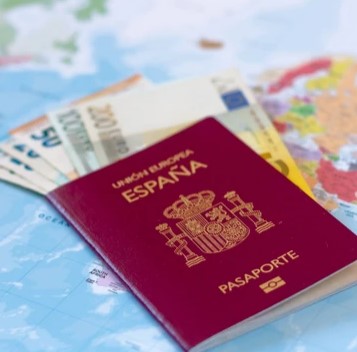One of the most asked questions at Marfour International from our international clients is how I can obtain the Spanish citizenship. There are several ways to obtain Spanish citizenship, each with its own requirements and procedures. In this article, we will explore the different ways to obtain Spanish citizenship.
Naturalization:
1. Naturalization is one of the most common ways to obtain Spanish citizenship. In order to be eligible, you must have legally resided in Spain for at least 10 years. The 10-year period can be reduced to five years for those who have refugee status or are stateless, and to two years for citizens of Latin American countries ( Argentina, Andorra, Bolivia, Brazil, Colombia, Costa Rica, Cuba, Chile, Ecuador, the Philippines, Equatorial Guinea, El Salvador, Guatemala, Honduras, Mexico, Nicaragua, Panama, Paraguay, Peru, the Dominican Republic, Uruguay, and Venezuela) Andorra, Philippines, Equatorial Guinea, Portugal, or those of Sephardic origin. Additionally, you must pass a Spanish language and culture test, and demonstrate sufficient knowledge of the Spanish legal system and democratic values.
2. Sephardic citizenship:
The Spanish government has introduced a law that grants citizenship to individuals of Sephardic origin who can demonstrate a special connection to Spain. This connection can be established through a variety of ways, such as language, family ties, or cultural heritage. Applicants must provide evidence of their Sephardic ancestry and demonstrate a basic knowledge of Spanish culture.
Marriage to a Spanish citizen:
3. Foreign nationals who are married to a Spanish citizen may be eligible for Spanish citizenship after one year of legal marriage and residency in Spain. The foreign spouse must have been married to the Spanish citizen for at least one year and must be legally residing in Spain. Additionally, the couple must demonstrate that they have a stable and genuine relationship.
Birth:
4. Individuals who were born in Spain to non-Spanish parents may be eligible for Spanish citizenship after one year of legal residency in the country. The law grants Spanish citizenship to anyone born in Spanish territory, regardless of the nationality of their parents, provided that at least one parent was born in Spain or has resided legally in Spain for at least one year.
Spanish origin:
5. Spanish citizenship can also be obtained by those who have a Spanish parent or grandparent, regardless of where they were born. Applicants must provide documentation proving their Spanish ancestry and demonstrate a basic knowledge of Spanish culture.
6. Newly, many grandchildren of Spanish citizen who left Spain due to the civil war on 1933 have the possibility thanks to the Law of grandchildren or Ley de Nietos approved on October 21st 2022.
In conclusion, obtaining Spanish citizenship can be a complex process, but there are several options available for those who are interested. Whether you are eligible for naturalization, have Sephardic ancestry, are married to a Spanish citizen, were born in Spain, or have Spanish ancestry, there is a path to Spanish citizenship that may be right for you and Marfour international law firm will provide you with a personalized support in your application.

